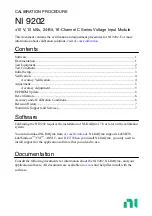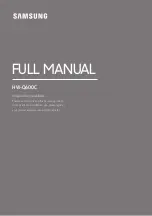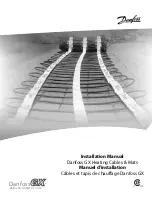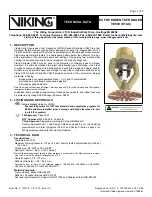
CMT-S30iP.GB.4-460-927-11(1)
WARNING
To reduce the risk of fire, do not cover the
ventilation opening of the appliance with
newspapers, tablecloths, curtains, etc.
Do not expose the appliance to naked flame
sources (for example, lighted candles).
To reduce the risk of fire or electric shock,
do not expose this appliance to dripping or
splashing, and do not place objects filled with
liquids, such as vases, on the appliance.
Do not install the appliance in a confined space,
such as a bookcase or built-in cabinet.
As the main plug is used to disconnect the unit
from the mains, connect the unit to an easily
accessible AC outlet. Should you notice an
abnormality in the unit, disconnect the main
plug from the AC outlet immediately.
Do not expose batteries or appliances with
battery-installed to excessive heat, such as
sunshine and fire.
The unit is not disconnected from the mains as
long as it is connected to the AC outlet, even if
the unit itself has been turned off.
CAUTION
The use of optical instruments with this product
will increase eye hazard.
Except for customers in Canada
This appliance is
classified as a CLASS
1 LASER product. This
marking is located on
the rear exterior.
Notice for customers: the
following information is only
applicable to equipment sold
in countries applying EU
directives.
This product has been manufactured by or on
behalf of Sony Corporation, 1-7-1 Konan Minato-
ku Tokyo, 108-0075 Japan. Inquiries related
to product compliance based on European
Union legislation shall be addressed to the
authorized representative, Sony Deutschland
GmbH, Hedelfinger Strasse 61, 70327 Stuttgart,
Germany. For any service or guarantee matters,
please refer to the addresses provided in the
separate service or guarantee documents.
For customers in Europe and
Australia
Disposal of Old
Electrical & Electronic
Equipment
(Applicable in the
European Union and
other European
countries with separate
collection systems)
This symbol on the product or on its packaging
indicates that this product shall not be treated
as household waste. Instead it shall be handed
over to the applicable collection point for the
recycling of electrical and electronic equipment.
By ensuring this product is disposed of
correctly, you will help prevent potential
negative consequences for the environment
and human health, which could otherwise be
caused by inappropriate waste handling of this
product. The recycling of materials will help to
conserve natural resources. For more detailed
information about recycling of this product,
please contact your local Civic Office, your
household waste disposal service or the shop
where you purchased the product.
Applicable accessories: Remote commander
Europe Only
Disposal of waste
batteries (applicable in
the European Union
and other European
countries with
separate collection
systems)
This symbol on the battery or on the packaging
indicates that the battery provided with this
product shall not be treated as household
waste.
On certain batteries this symbol might be used
in combination with a chemical symbol. The
chemical symbols for mercury (Hg) or lead (Pb)
are added if the battery contains more than
0.0005% mercury or 0.004% lead.
By ensuring these batteries are disposed of
correctly, you will help prevent potentially
negative consequences for the environment
and human health which could otherwise be
caused by inappropriate waste handling of the
battery. The recycling of the materials will help
to conserve natural resources.
In case of products that for safety, performance
or data integrity reasons require a permanent
connection with an incorporated battery, this
battery should be replaced by qualified service
staff only. To ensure that the battery will be
treated properly, hand over the product at end-
of-life to the applicable collection point for the
recycling of electrical and electronic equipment.
For all other batteries, please view the section
on how to remove the battery from the product
safely. Hand the battery over to the applicable
collection point for the recycling of waste
batteries.
For more detailed information about recycling
of this product or battery, please contact
your local Civic Office, your household waste
disposal service or the shop where you
purchased the product.
Playing the iPod/iPhone
For details about compatible models, see
information under “iPod/iPhone” in “Compatible
devices with this system.” For details on how to
use the iPod/iPhone, refer to the user guide
supplied with your iPod/iPhone.
1
Select the USB function.
Press USB
.
2
Connect the iPod/iPhone to the (USB)
port
using the USB cable supplied
with your iPod/iPhone.
3
Start playback.
Press
.
To control the iPod/iPhone
To
Press
Pause playback
/
.
Stop
.
Select a track
/
.
Find a point in a
track
Hold down
/
during playback, and release
the button at the desired
point.
Choose the
selected item
/
.
Scroll up/down
the menus of
iPod
/
.
Return to the
previous menu*
/RETURN
.
* This operation may be invalid in some
applications.
To use the system as a battery charger
You can use the system as a battery charger for
an iPod/iPhone when the system is on.
The charging begins when the iPod/iPhone is
connected to the
(USB) port
using the USB
cable supplied with your iPod/iPhone. The
charge status appears on the display of iPod/
iPhone. For details, see the user’s guide of your
iPod/iPhone.
To stop charging an iPod/iPhone
Disconnect the iPod/iPhone. Turning off the
system also stops charging the iPod/iPhone.
Notes
The performance of the system may vary,
depending on the specifications of your iPod/
iPhone.
Operate the iPod/iPhone directly if you cannot
operate the iPod/iPhone normally using the
system.
Do not carry the system with an iPod/iPhone
connected to it. Doing so may cause a
malfunction.
When connecting or disconnecting the iPod/
iPhone, brace the system with one hand and take
care not to press the controls of the iPod/iPhone
by mistake.
Before disconnecting the iPod/iPhone, pause
playback.
To change the volume level, use /
.
The volume level does not change even if you
adjust it on the iPod/iPhone.
To use an iPod/iPhone, refer to the user’s guide of
your iPod/iPhone.
Sony cannot accept responsibility in the event that
data recorded to iPod/iPhone is lost or damaged
when using an iPod/iPhone with this system.
Getting Started
Unit
Remote
This manual mainly explains operations using the
remote, but the same operations can also be
performed using the buttons on the unit having
the same or similar names.
To use the remote
Slide and remove the battery compartment lid,
and insert the R6 (size AA) battery (not supplied),
side first, matching the polarity shown below.
Notes on using the remote
With normal use, the battery should last for about
six months.
If you do not use the remote for a long period of
time, remove the battery to avoid damage from
battery leakage and corrosion.
When carrying this system
1
Remove a disc to protect the CD
mechanism.
2
Press
(on/standby)
on the unit to
turn off the system and confirm that
“STANDBY” stops flashing.
3
Unplug the power cord.
To set the clock
1
Press
to turn on the system.
2
Press TIMER MENU
to select the clock
set mode.
If “SELECT” appears, press
/
repeatedly to select “CLOCK,” and then press
(enter)
.
3
Press
/
repeatedly to set the
hour, then press
.
4
Use the same procedure to set the
minutes.
Note
The clock settings are lost when you disconnect the
power cord or if a power failure occurs.
To display the clock when the system is
off
Press DISPLAY
. The clock is displayed for
about 8 seconds.
ANTENNA
Find a location and orientation that provide good
reception when you set up the antenna.
Keep the antenna away from the speaker cords
and the power cord to avoid picking up noise.
AUDIO IN jack
Connect an external audio component.
SPEAKERS
Connect the speaker cords.
Power
Connect the power cord to a wall outlet.
Listening to the radio
1
Select the FM function.
Press FM
.
2
Perform tuning.
For automatic scanning
Press TUNING MODE
repeatedly until
“AUTO” appears, and then press /
TUNING
. Scanning stops automatically
when a station is tuned in.
If the scanning does not stop, press
to
stop scanning, then perform manual tuning
(below).
For manual tuning
Press TUNING MODE
repeatedly until
“MANUAL” appears, and then press /
TUNING
repeatedly to tune to the desired
station.
When you tune to a station that provides RDS
services, the station name appears on the
display (European model only).
Tip
To reduce static noise on a weak FM stereo station,
press FM MODE
repeatedly until “MONO” appears
to turn off stereo reception. You will lose stereo
effect, but reception will improve.
Presetting radio stations
1
Tune to the desired station.
2
Press TUNER MEMORY
to select the
tuner memory mode.
3
Press /PRESET
repeatedly
to select the desired preset number.
If another station is already assigned to the
selected preset number, the station is
replaced by the new station.
4
Press
to store the station.
5
Repeat steps 1 through 4 to store other
stations.
You can preset up to 20 FM stations. The
preset stations are retained for about half a
day even if you disconnect the power cord or
if a power failure occurs.
To tune to a preset radio station
If you registered a radio station to a preset
number 1 to 6, the radio station will be tuned in
by just pressing the TUNER MEMORY NUMBER (1
to 6)
when the system function is set to FM.
If you registered a radio station to a preset
number 7 or higher, press TUNING MODE
repeatedly until “PRESET” appears then press
/PRESET
repeatedly to select the
desired preset number.
Operations
Playing a CD/MP3/WMA disc
1
Select the CD function.
Press CD
.
2
Place a disc.
Press
on the unit, and place a disc with
the label side up on the CD compartment.
To close the CD compartment, press
on
the unit.
3
Start playback.
Playback of the CD-DA disc starts
automatically.
Press
(play)
to play a MP3/WMA disc.
Other operations
To
Press
Pause playback
(pause)
. To resume play,
press
.
Stop playback
(stop)
twice.
Select a folder
on an MP3/
WMA disc
(select folder) +/
repeatedly.
Select a track or
file
(go back)/
(go
forward)
.
Find a point in a
track or file
Hold down
(rewind)/
(fast forward)
during
playback, and release the
button at the desired point.
Select Repeat
Play
REPEAT
repeatedly until
“RPT 1,” “RPT FLDR*” or “RPT
ALL” appears.
* MP3/WMA disc only
To change the play mode
Press PLAY MODE
repeatedly while the player
is stopped. You can select normal play (“FLDR”
for all MP3/WMA files in the folder on the disc),
shuffle play (“SHUF” or “FLDRSHUF” for folder
shuffle), or program play (“PROGRAM”).
Note on Repeat Play
“RPT 1” indicates that a single track or file is
repeated until you stop playback.
Notes on playing MP3/WMA discs
Do not save other types of files or unnecessary
folders on a disc that has MP3/WMA files.
Folders that have no MP3/WMA files are skipped.
MP3/WMA files are played back in the order that
they are recorded onto the disc.
The audio formats that you can listen to with this
system are as follows:
MP3: file extension “.mp3”
WMA: file extension “.wma”
Even when file name has the correct file extension,
if the actual file differs, playing this file may
generate a loud noise by which the system may
malfunction.
The maximum number of:
folders is 256 (including the root folder).
MP3/WMA files is 999.
folder levels (the tree structure of files) is 8.
Compatibility with all MP3/WMA encoding/writing
software, recording device, and recording media
cannot be guaranteed. Incompatible MP3/WMA
discs may produce noise or interrupted audio or
may not play at all.
Note on playing multisession discs
The system can play back continuous sessions on a
disc when they are recorded in the same session
format as the first session. When a session recorded
in a different session format is encountered, that
session and the ones following it cannot be played
back. Note that even if the sessions are recorded in
the same format, some sessions may not play back.
FM lead antenna (Extend it horizontally.)
To right speaker
To left speaker
To attach the speaker pads
Attach the supplied speaker pads at each corner
on the bottom of the speakers to prevent them
from slipping.
Speaker cord (Red/
)
Speaker cord (Black/
)
To wall outlet
Playing a file of the USB
device
The audio format that can be played back on this
system is MP3/WMA*.
Check the information on websites for
compatible USB devices using the URLs listed
under “USB devices” in “Compatible devices with
this system.” For details on how to use the USB
device, refer to the user guide supplied with your
USB device.
* Files with DRM (Digital Rights Management)
copyright protection cannot be played back on
this system.
Files downloaded from an online music store may
not be played back on this system.
1
Select the USB function.
Press USB
.
2
Connect the USB device to the (USB)
port
.
3
Start playback.
Press
.
Other operations
To
Press
Pause playback
. To resume play, press
.
Stop playback
. To resume play, press
*. To cancel resume
play, press
again.
Select a folder
+/
repeatedly.
Select a file
/
.
Find a point in a
file
Hold down
/
during playback, and release
the button at the desired
point.
Select Repeat
Play
REPEAT
repeatedly until
“RPT 1,” “RPT FLDR” or “RPT
ALL” appears.
* When playing a VBR MP3/WMA file, the system
may resume playback from a different point.
To change the play mode
Press PLAY MODE
repeatedly while the USB
device is stopped. You can select normal play
(“FLDR” for all files in the folder on the USB
device), shuffle play (“SHUF” or “FLDRSHUF” for
folder shuffle), or program play (“PROGRAM”).
Note on Repeat Play
“RPT ALL” indicates that all audio files on a USB
device are repeated until you stop playback.
Notes
When USB cable connection is necessary, connect
the USB cable supplied with the USB device to be
connected. See the operation manual supplied
with the USB device to be connected for details on
the operation method.
It may take about 10 seconds before “SEARCH”
appears depending on the type of USB device
connected.
Do not connect the system and the USB device
through a USB hub.
When the USB device is inserted, the system reads
all the files on the USB device. If there are many
folders or files on the USB device, it may take a
long time to finish reading the USB device.
With some connected USB devices, after an
operation is performed, there may be a delay
before it is performed by this system.
Compatibility with all encoding/writing software
cannot be guaranteed. If audio files on the USB
device were originally encoded with incompatible
software, those files may produce noise or
interrupted audio, or may not play at all.
This system cannot play audio files on the USB
device in the following cases;
when the number of audio files in a folder
exceeds 999.
when the total number of audio files on a USB
device exceeds 999.
when the number of folders on a USB device
exceeds 256 (including the “ROOT” folder and
empty folders).
These numbers may vary depending on the file
and folder structure. Do not save other types of
files or unnecessary folders on a USB device that
has audio files.
The system can play back to a depth of 8 folders
only.
This system does not necessarily support all the
functions provided in a connected USB device.
Files and folders are displayed in the order of their
creation on the USB device.
Folders that have no audio files are skipped.
The audio formats that you can listen to with this
system are as follows:
MP3: file extension “.mp3”
WMA: file extension “.wma”
Note that even when file name has the correct file
extension, if the actual file differs, the system may
produce noise or may malfunction.
To use the system as a battery charger
You can use the system as a battery charger for
USB devices that have a rechargeable function
when the system is on.
The charging begins when the USB device is
connected to the
(USB) port
. The charge
status appears in the USB device display. For
details, see the user’s guide of your USB device.
Notes on charging the USB device with this
system
You cannot use the system as a battery charger
when the system is off.
Some USB devices can be charged only when the
system is in the USB function.
Creating your own program
(Program Play)
1
Select the CD or USB function.
Press CD
or USB
.
2
Select the play mode.
Press PLAY MODE
repeatedly until
“PROGRAM” appears while the player is
stopped.
3
Select the desired track or file number.
Press
/
repeatedly until the desired
track or file number appears.
When programming MP3/WMA files, press
+/
repeatedly to select the
desired folder, and then select the desired file.
Selected track or
file number
Total playing time of
the selected track
(CD-DA disc only)
4
Program the selected track or file.
Press
to enter the selected track or file.
5
Repeat steps 3 through 4 to program
additional tracks or files, up to a total of
64 tracks or files.
6
To play your program of tracks or files,
press
.
The program remains available until you
perform one of the following operations:
changing the function.
turning off the system.
disconnecting the power cord.
opening the CD compartment.
To play the same program again, press
.
To cancel Program Play
Press PLAY MODE
.
To delete the last track or file of the
program
Press CLEAR
while the player is stopped.
Home Audio System
Operating Instructions
©2013 Sony Corporation Printed in China
CMT-S30iP
4-460-927-
11
(1)
GB




















